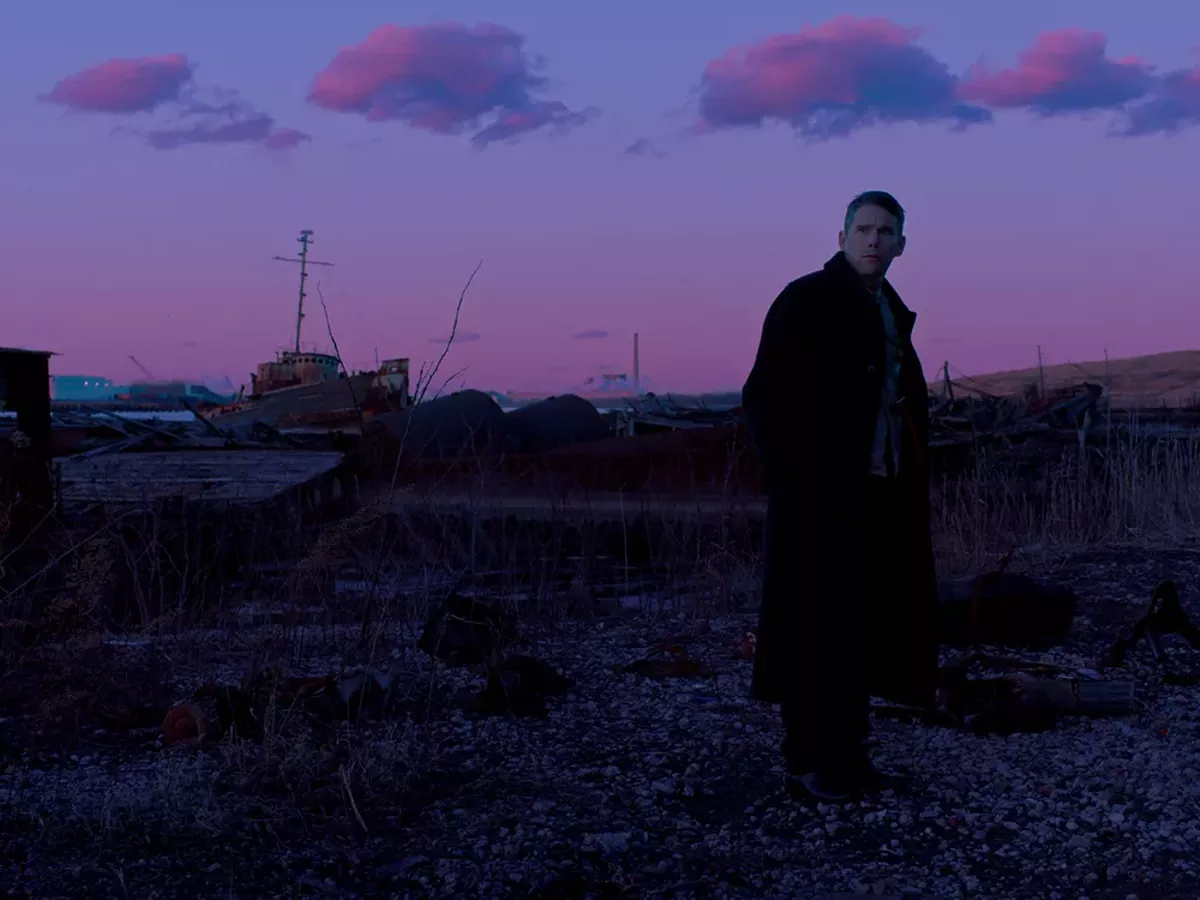

Audio By Carbonatix
[
{
"name": "GPT - Leaderboard - Inline - Content",
"component": "35519556",
"insertPoint": "5th",
"startingPoint": "3",
"requiredCountToDisplay": "3",
"maxInsertions": 100,
"adList": [
{
"adPreset": "LeaderboardInline"
}
]
}
]
Writer-director Paul Schrader's apocalyptic new vision (perhaps his strongest since scripting the one-two punch of Taxi Driver and Raging Bull) draws generously from our present, capturing this bleak moment in direct, literal, and unforgiving ways.
Starring Ethan Hawke as the Rev. Ernst Toller, a disillusioned, despairing, and broadly ailing pastor, the movie centers on his pressing, desperate need to embody goodness in a world insensitive to his efforts. His earnest attempts to counsel Michael (Philip Ettinger), a recently released activist jailed for environmental protests, and Michael's pregnant wife, Mary (Amanda Seyfried), are furiously impeded. He has scant better luck with his efforts to oversee the small and dwindling First Reformed Church, founded in the early, pre-Republic days of the American experiment, now a tourist attraction racing toward its 250th anniversary.
The church, an audacious gamble of its own at birth and then a community fixture, is now on life support, diminished to the status of a pet project for the booming, corporately financed megachurch Abundant Life — rendering the Rev. Toller a kind of petty dictator. Over an intensely pressurized two hours, Schrader hammers home an intense air of paralysis and existential dread. Slow, methodical cuts and deftly intersecting plotlines give a continual, creeping sense of a ticking clock. This toxic atmosphere seems to come both from within the pastor and the world around him. In one scene early in the film, while Toller counsels Mary and the more troubled Michael on their unborn child's odds at a future, director Schrader stresses the matter by flashing a thermal map of rising temperatures ominously in the background — a global peril encroaching steadily on both their thoughts. Even in that initial conversation, Toller concedes that if Michael's projections are right "the only rational response is despair," and writing later from his dim, spare rectory, our man of faith states: "I know that nothing can change, and I know there is no hope."
If this all sounds like a lot to take, rest assured that Schrader balances out the film's various, looming threats and plots by interweaving them with the fabric of Toller's days. Though Toller is unquestionably the central character, both he and the movie seem to breathe most freely when other characters get some time. In one of the film's purest sequences, Mary and Toller cycle through a park in winter, the camera capturing his view of passing branches as he muses idly on the "restorative power" of exercise. This sequence, like the moment in which Mary thanks him afterward, feels humble and direct, with Seyfried and Hawke sweetly matching one another in both willful propriety and aching sincerity. These sorts of interludes, in which ministry seems to have some small hope of working at least on a small scale, are shot through with the same tentative air as the rest of the movie — leaving the acting and the drama to the nuances of the performers' voices and facial expressions. Schrader's ability to pitch his scenes (oddly steady, rarely frothy here) so that they all contribute to the others' tone throughout is the clearest sign of his mastery, focused as they all are on the notion of hope against stark odds.
Still, it's worth noting that no scene in First Reformed ever leaves its protagonist, and through his spiraling journal entries and increasingly rash moves, Schrader undermines the old-school Protestantism at its center. Facing the private burdens of a veteran, a divorcée and an aggrieved father for a start, Toller's image of the world seems to consist of nothing but obstacles (at one point he even calls a concerned peer a "stumbling block"). Corporate malfeasance, climate change, and threats of violence cloud the air around him, insinuating themselves swiftly into his closely defined, basically ascetic world and threatening his sense of purpose. All the same, Schrader refuses to glorify Toller; over the course of the film, his moralism proves narrow, uncompromising, and increasingly extreme, its contours convincingly illuminated by Hawke's anxiously barbed performance. Rejecting help frequently in the face of daunting, Job-like obstacles, Toller faces the sorts of troubles that afflict us all, albeit (I hope) to a considerably greater degree.
By the movie's end it's clear his troubles come from within as well as without, and just as Martin Scorsese's Catholicism-inflected characters revel in indulgent excess, our man Toller seems to get some kick from his own piety, a strain unbidden in each of us, warping us all deeply.
Get our top picks for the best events in Detroit every Thursday morning. Sign up for our events newsletter.





